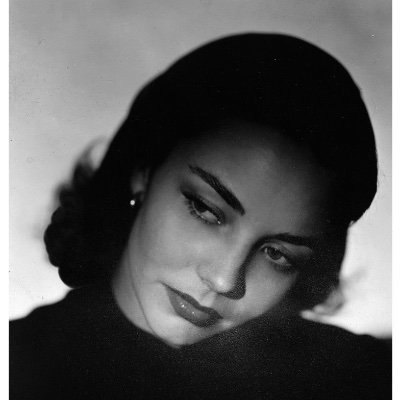
- Starring
- Ray Fearon, Christopher Sciueref, Denise Black
- Writer
- Sheikh Al-Habib
- Director
- Eli King
- Rating
- R (United States)
- Running Time
- 141 minutes
- Release Date
- December 10th, 2021
Overall Score
Rating Summary
Eli King’s The Lady of Heaven is one of a small number of English language productions that dramatizes events depicted in the Quran. It alsol holds the distinction of being the first feature film to tell the story of Fatima, the daughter of the Islamic prophet Muhammad. The film provides a tasteful depiction of her life before and after her father’s death and reflects upon the roles that women play in Muslim societies. It also endeavors to consider the place of Islam in the modern world and the struggles that contemporary Muslims face when separating their personal faith from the actions of ISIS members.
The Lady of Heaven is not a subtle film by any means but it does present a refreshingly sympathetic portrayal of a religion that doesn’t often make an appearance in English-language cinema. Islam is also considered from a fairly unique perspective. Other Hollywood films that brought the story of the Quran to the screen in the past have tended to downplay the role of women in helping to found Muslim societies and offering moral guidance to members of younger generations. The Message attempted to serve as a Muslim version of a Biblical Epic. It emphasized action, spectacle and dramatic histrionics above all else. In accordance with the beliefs of many Muslims regarding on-screen depictions of important religious figures, this film avoids depicting Fatima’s face on screen. This does create a certain amount of distance between the viewer and the film’s protagonist but it ultimately evolves into a story about the impact that Fatima had on her contemporaries.
Sheikh Al-Habib’s screenplay brings Fatima to life through the use of others. In other dramas, this might be viewed as a lazy use of exposition that allows the writers to avoid crafting a complex, three dimensional character. In The Lady of Heaven, this device actually serves a purpose. Fatima serves as a role model for all Muslim women living in her region and it becomes difficult for her followers to reconcile her mythical aura with the idea of a flesh and blood woman. In viewing her as an idea, the film gets to the root of one of the issues that religious individuals face when trying to form a personal connection with the religious figures that stand at the center of Islam. It is impossible to fully mythologize these figures and treat them like inhuman figures, but it is also true that, as with any historical figure, there are sides of Fatima’s personality that probably weren’t captured in written accounts of her life story. In placing some distance between Fatima and audience members, the film respectfully acknowledges the fact that it would be virtually impossible to offer up a satisfactory rendering of Fatima as a human being.
The Lady of Heaven also features some lovely production design, with considerable restraint being shown in the scenes set in the seventh century. It becomes a surprisingly un-glitzy period piece and strips away the air of remove that many films in the genre possess. The scenes set during this time period have a surprising sense of urgency. This could be due to the vastness of the locations but it tended to overwhelm the members of the cast. This however actually ends up being a good thing as the film largely focuses on people who feel as though they are faced with insurmountable tasks. The finery and grandeur of their belongings could never compete with the harshness of the natural environment that surrounds them. We are constantly reminded of the fact that their lives are threatened and the film’s refusal to slip into easy complacency is admirable.
It would be nice if this film’s success encouraged studios to produce more films that feature a sympathetic portrayal of Muslims. During these politically fraught times, it is important that members of the general public remain aware of the fact that the vast majority of Muslims are ordinary, non-violent people who contend with many of the issues that make life difficult for non-Muslims. It would represent growth and evolution in the film industry if we saw more films like this and less xenophobic action movies in which Muslims are relegated to being the villains.
still courtesy of Enlightened Kingdom
Follow me on Twitter.
If you liked this, please read our other reviews here and don’t forget to follow us on Twitter or Instagram or like us on Facebook.

I am passionate about screwball comedies from the 1930s and certain actresses from the Golden Age of Hollywood. I’ll aim to review new Netflix releases and write features, so expect a lot of romantic comedies and cult favourites.
Discover more from
Subscribe to get the latest posts sent to your email.
